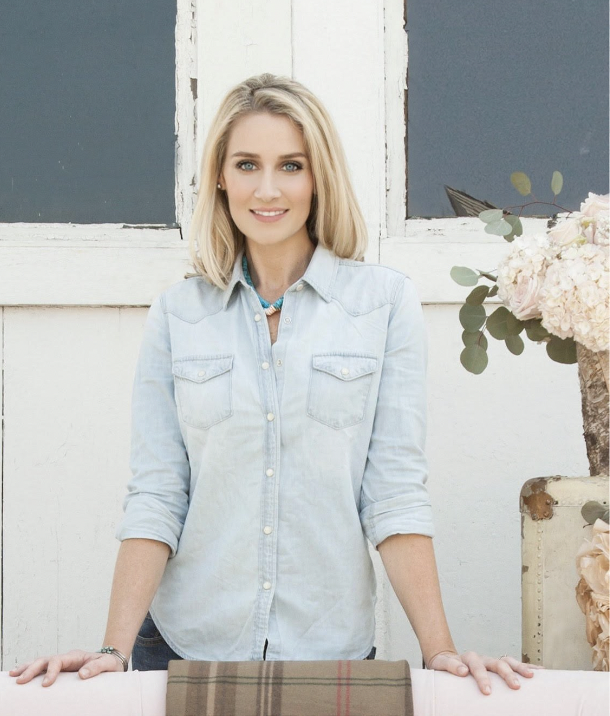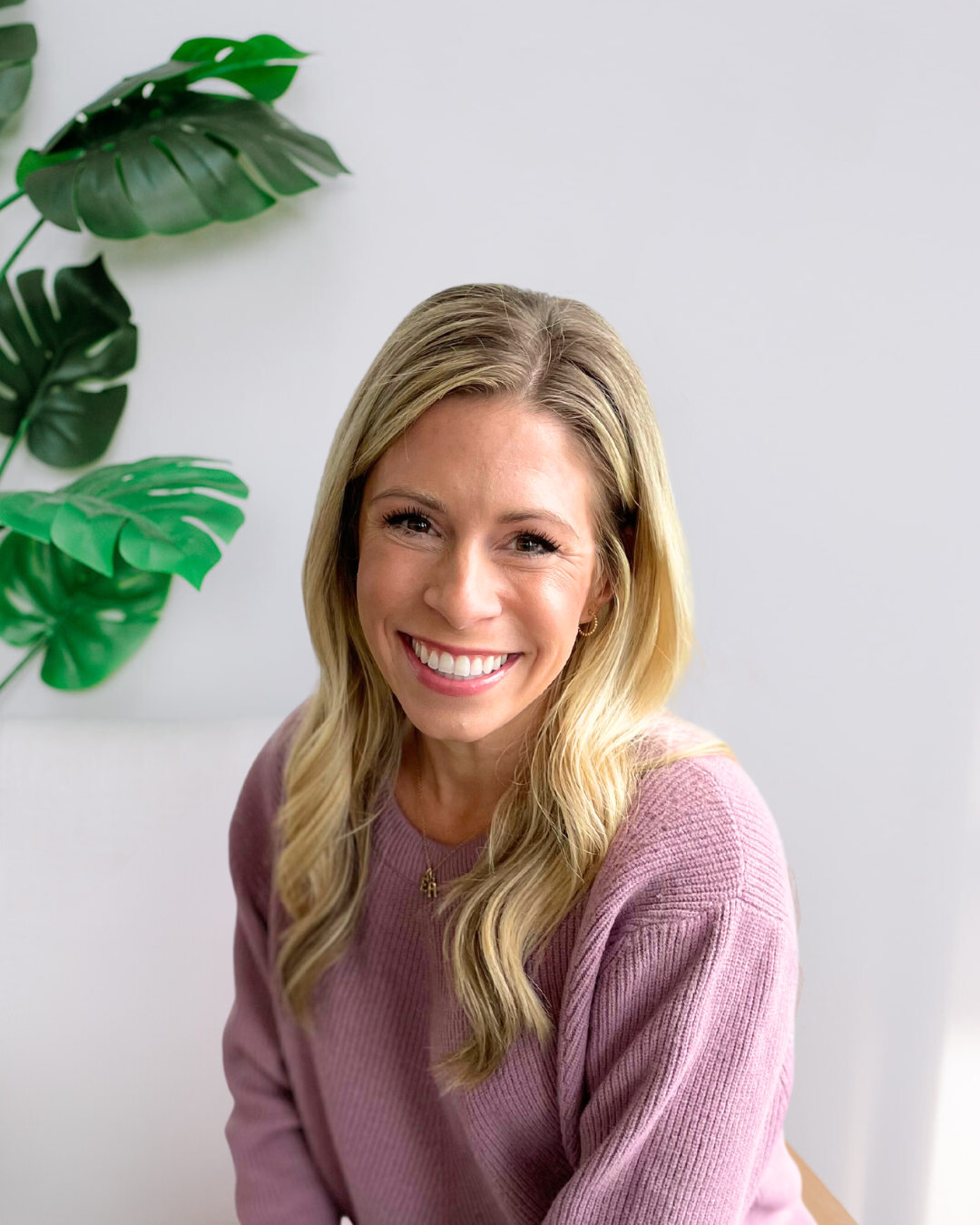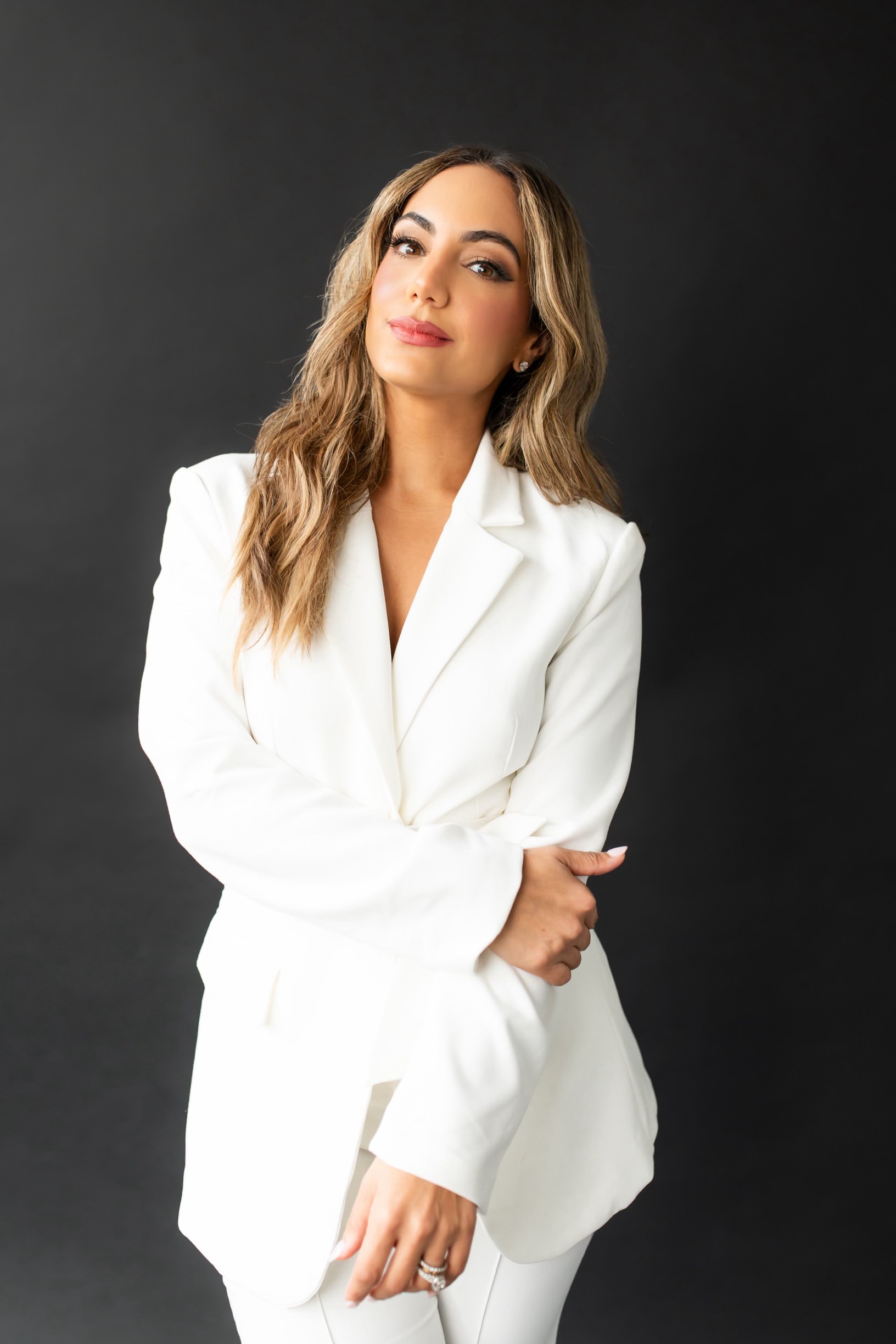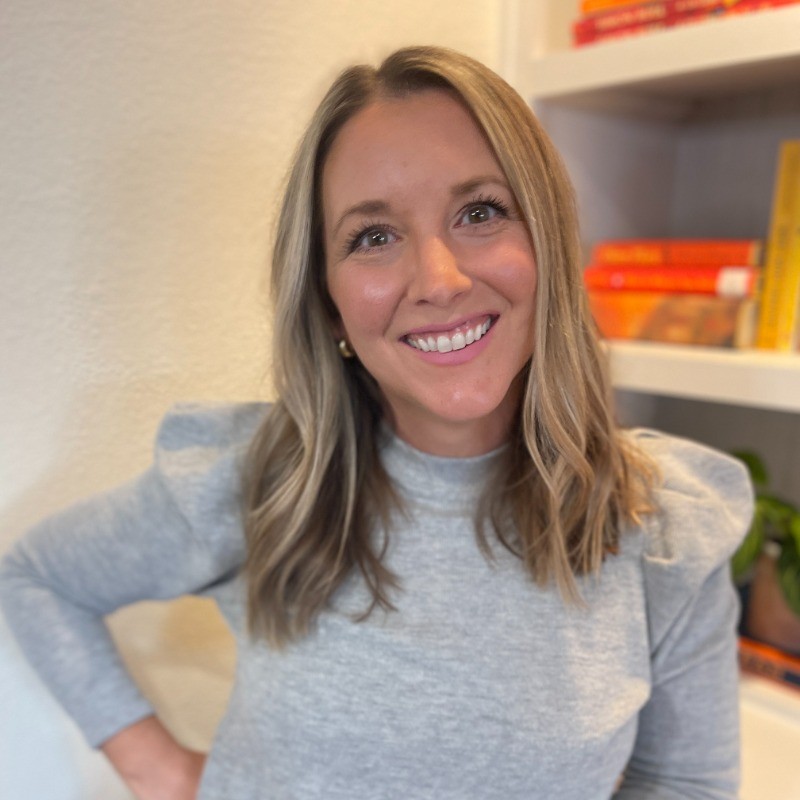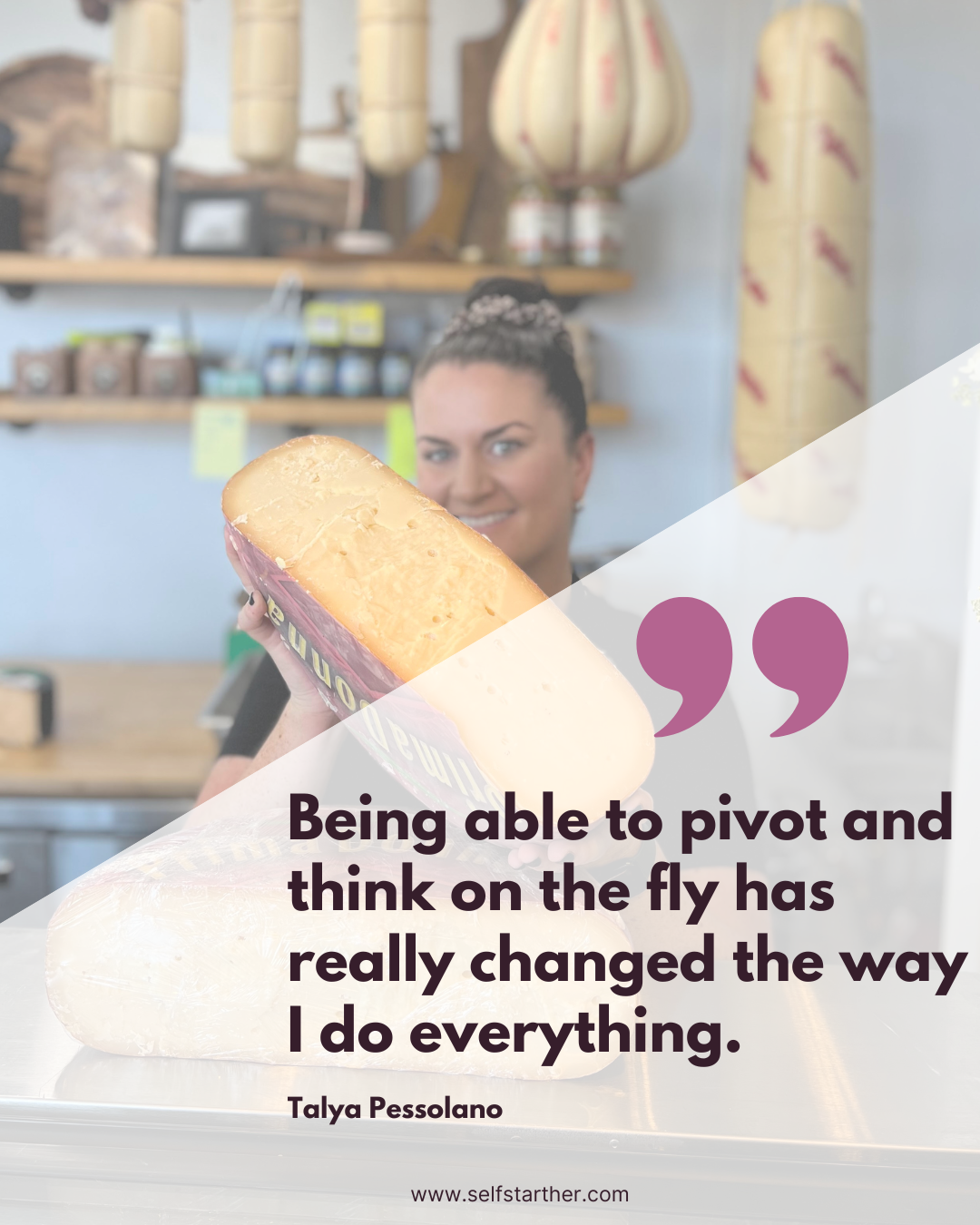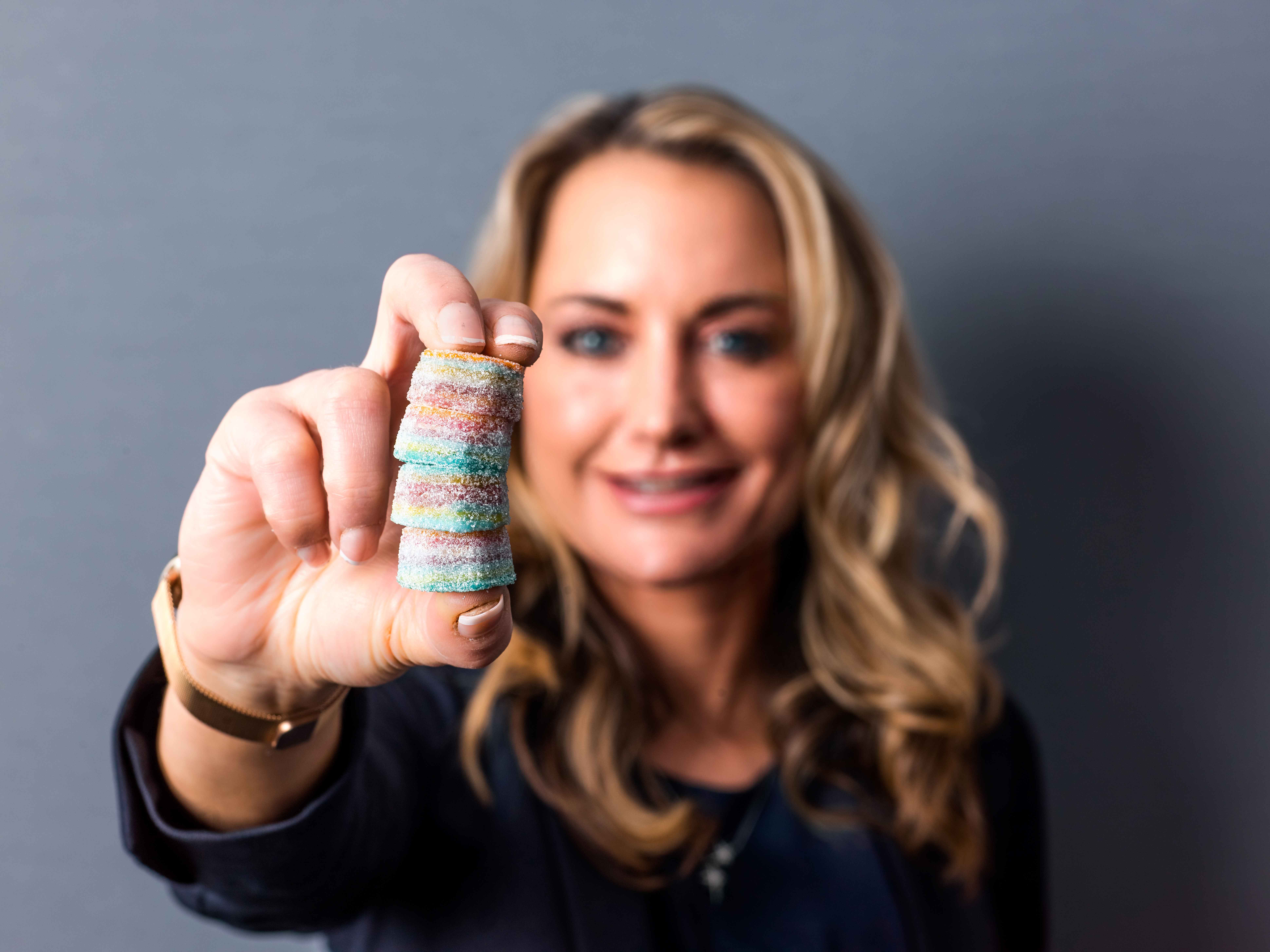In this episode of the Self-Starter podcast, Megan Tobler interviews Maggie Lord, founder of Rustic Wedding Chic.
When Maggie was 26 years old she started what in 2008 was called a blog focused on the wedding niche which quickly turned into a full media company with millions of readers monthly and a massive social media presence including 10M+ impressions of content a month on Pinterest.
In addition to the digital side of the business, Maggie led the company to 6 publishing deals and a major licensing opportunity for wedding products.
After a successful 12 years in business Maggie made the bold move to exit Rustic Wedding Chic and in 2020 she sold to the largest bridal retailer in the world, David’s Bridal.
Maggie is now an exit readiness advisor and coach to female founders and their brands.
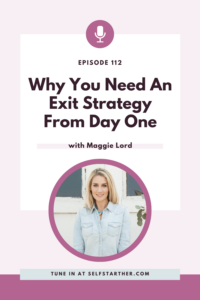
Maggie discusses the challenges and triumphs of entrepreneurship, the importance of having an exit strategy, and her current work coaching female founders. She emphasizes the need for women to recognize the value of their businesses and prepares them for potential acquisitions, while also providing practical advice for aspiring entrepreneurs.
Key Takeaways
- The importance of finding a gap in the market.
- The significance of SEO and organic growth in the early days.
- Transitioning from a solo entrepreneur to building a team as the business grew.
- The importance of having an exit strategy, even if it’s years away.
Transcript
Megan Tobler (00:01.177)
Maggie, I am so excited to be able to have you on today’s podcast and talk about all things business building and also exiting. So thanks for joining the Self -Starter podcast. Yes. Now you’ve been able to create a scenario that many listeners dream of and that’s building a successful business to a point where you were actually acquired. So today you’re using that knowledge as an exit readiness advisor and coach, but
Maggie Lord (00:12.79)
Thank you for having me.
Megan Tobler (00:29.725)
Before we dive into that, I would really love to just know a little bit more about yourself and the business that you originally created back in 2008.
Maggie Lord (00:39.178)
Yeah, so at the time I was finishing grad school and I was actually a part -time teacher at a middle school and I was engaged to my now husband and I was if you go back in that mindset or that time where there was no Pinterest, there was no Instagram, we were still looking at wedding magazines but there was starting to kind of be some online content.
And the day they were just wedding blogs, right? And there was Style Me Pretty and a couple other, but not much. And I was actually planning a long distance wedding. My husband and I live in Connecticut. We were getting married at my family’s very rustic lake house in Wisconsin. And I was trying to share my ideas and vision for the day with the vendors out there and I was not succeeding. And so I found this place online where I was like, I’m just gonna…
do a little blog and put up pretty pictures and then everything will be in one spot. And what I found very quickly was that we had an instant readership that women were trying to plan another rustic farm, lakeside, barn, countryside wedding, and they were not finding the inspiration they needed either. And so it started with being able to share beautiful photography from photographers about…
a rustic wedding and later then really morphed into vendor directories. And what I didn’t realize at the time, I was building a media company, right? So was almost like I had to discover it as I went. And so I launched the company with really $1 of my own money. Most of that went.
to getting a logo created and getting some tech help to get the website up and going. And over the years, I was very fortunate to lead the company to having a publishing deal of six books. We licensed our name to product. We licensed our name to stationery. We did a lot of things in the wedding world. And Rustic Wedding Chic went from being a very personal blog that I was going to share my
Maggie Lord (02:45.154)
wedding planning experience to a large media company. And to your point, in 2020, I did, sold Rustic Wedding Cheek to David’s Bridal.
Megan Tobler (02:55.367)
Wow, so it sounds like this actually didn’t start out to be a business. It sounded like it was a solution to a potential problem. Like basically you’re trying to simplify the process for your vendors to be able to give them a place where they were able to understand your vision because of the distance. And throughout that experience, you realize that, wow, people are also, they’re gravitating towards this and there’s something here. So at what point did you realize that
this blog that you started to be able to communicate your vision with your vendors and your family, that there was something more here that you could actually capitalize on.
Maggie Lord (03:33.89)
I realized, as I said very quickly, that we had a lot of readership and a lot of other brides were reaching out asking for, do you know a barn in Michigan? And do you know a great location in California? I’m looking for a very rustic or something. And I was like, I live in Connecticut. I only know the vendors around here. And I had nothing to do in the wedding world. I wasn’t a wedding planner. But I did realize quickly that the rustic umbrella term, which encompassed a lot of different styles, was not
being focused on and yet it was becoming the trend, the style of that time. And so within like a month of launching Rustic Wedding Chic, we had high readership and I had brands reaching out to advertise. And so it happened very quickly.
And we own, there was no business plan. Like I, the company was running and I did not even have a lot of things in place that I needed to have in place to be running a successful company. So I would say it was within the first three months of launching Russic wedding chic. And when I say launching, there was no marketing plan. There was no marketing dollars, right? I just rolled it out on the internet. I realized, wait, I, I just launched an entire company and now I need to play catch up.
Megan Tobler (04:51.025)
And when you say launch, were you talking about launching the blog for your personal reasons or you took it the next step and realized that there was this trend out there that you were able to kind of run with?
Maggie Lord (05:03.532)
Yeah, it was really just launching it for myself and I didn’t want it to be a personal blog of like my, how hard it was to plan a wedding or anything like that. It was about trying to find a place where I could have inspiration live so people could find it and really be able then to plan the wedding that they wanted. And so I called it Rustic Wedding Chief because I didn’t want it just tied to me.
But it was, yeah, very quickly we got a lot of readership and a lot of eyeballs. And we had realized that this sort of niche in that wedding market was not really being served, right? And so I just happened to be right place, right time to be able to have a company that could speak to these brides.
Megan Tobler (05:49.031)
I was talking to someone recently and basically she said that what you need to do is obviously there’s people out there that are doing similar things to all of us, but you really need to take a step back and only look for the gap in the market. And this was your gap that there were other wedding planners, there are other wedding blogs out there, but Rustic really wasn’t being done at the level and capacity you were doing it to.
Maggie Lord (06:09.11)
what exactly wasn’t really being focused on and yet it was becoming a huge, huge trend. And I always say it came from a very organic place because I was planning my own rustic wedding. And so I didn’t take a step back and say like, okay, what is not being served in the wedding world and where can I focus on that? So I was lucky in the fact that it was being underserved and yet I kind of became the spokesperson for this whole style.
of weddings very quickly.
Megan Tobler (06:39.773)
Well, that’s the best way for things to evolve organically because it’s authentic and people like you and they trust you because you’ve gone through it. You’re not trying to push an agenda. You’re just sharing your knowledge and that organically just attracts a unique individual. But speaking of traction, you said that it got quite a few listeners right away to the point where you’re getting advertisement. So obviously,
Times have evolved since 2008. So what did the market look like back then as far as how to get this blog out to a wider audience?
Maggie Lord (07:14.58)
Yeah, so there was a couple of things happening. the way we could monetize the site and, you know, I was not a tech genius. didn’t, I had not never monetized a website before. you know, and I really had to kind of bring in some advisors and some helpers to say like, okay, I have this product. It’s gotten a lot of attention, but what, how do I make money from it? And so we were able to monetize it because in that time,
Display ads were everything for companies, right? They really wanted to be in all of these blogs. They wanted to be talked about. So we were very heavy on display ads and doing brand deals. And then from there, we were able to market Rustic Wedding Chic from one was an organic SEO standpoint. We owned everything in the rustic world. So if you typed in rustic wedding anything back then, we came up everywhere on Google. We were like the first three pages of Google. So that was extremely helpful.
The other thing that happened was we did realize like Pinterest when that launched, we needed to be a part of it. And we were on it before there was a Pinterest for business, which really catapulted our business. But it really was, we were found very organically through Google searches. so because our readership was so high, it was very easy to say to brands, you can advertise with us.
and we’re gonna get you in front of the right bride. And we didn’t, it wasn’t until 2013 that we launched our vendor directory. And that came out of a need where vendors were like, I’m spending money on these general directories for weddings, but I’m not seeing the return on investment there. At least they know if they were spending the money with us on our vendor directory, those brides were actively looking for their venue that was gonna fit their style.
Megan Tobler (09:03.833)
And you’ve alluded to the term we a few times. I’m curious, like, did you build this with a team or were you a solo gal at the beginning and eventually grew from there?
Maggie Lord (09:14.454)
Definitely very solo in the beginning. Come from a family of entrepreneurs and so bring in help when needed. My brother at the time was like a president of a media company. So I was like, I have a blog and he was like, it doesn’t mean anything if you can’t monetize it. Right. So I did, I did start to slowly build out a team of advisors who helped, but then I also did have to bring in contractors as well. Cause I quickly realized I can’t do everything. I was running all the editorial.
which was including two new live features every single day. All the social side of things really got to be huge. And then the ad side of things, right? The ad sales and things. So I did start to build it out and get some help from a contract employee standpoint.
Megan Tobler (10:00.155)
And that’s a ton of work. You mentioned earlier that you were also juggling being a part -time teacher. So how were you building this business simultaneously while also having a job, a steady job?
Maggie Lord (10:10.306)
Yeah, we, I launched Rustic Wedding Chic in the spring of 2008 and did not return to my teaching job after the summer. It was very clear that I was gonna be able to make this my full -time job, you know, and at that point, it was bringing enough money to be able to support me, but also our contract employees as well.
Megan Tobler (10:38.237)
That’s the ultimate story right there. That’s everyone’s dream. You make it sound so easy, but I know that there was probably a lot of sleepless nights that were involved because you’re learning new tactics and strategies. You mentioned SEO. I’m not a tech wizard, and that’s not something that most of us are taught. It’s something that, but in order to become one of the top search results, you have to be able to understand your strategies.
Maggie Lord (10:40.8)
Yeah.
Megan Tobler (11:05.607)
How did you do all this as far as like learning new things as a solopreneur? Because that’s a lot of pressure to have on your plate.
Maggie Lord (11:15.306)
Yeah, there is a lot of areas within running a business I had no idea about and there was a lot of areas within the tech side of running this sort of business that I don’t, I probably didn’t even know what the term SEO meant at the time, to be honest, you know, and so
I relied a lot on looking for advisors, asking for help. One thing was, if you tried to stand out today in such a crowded space like the wedding world, it’s incredibly difficult. Everybody has some sort of site or the market is saturated. At the time, there was other competition, but we were kind of the first in the rustic world.
we owned our own SEO strategy because we didn’t have to try to compete with anybody else at the time. But I’m a big believer in like, obviously from a creative standpoint, I was really good at leading the company. I knew what I thought our reader really wanted to see.
And then you have to surround yourself with people who are really good at the things that you have a skill gap in. So find a good bookkeeper, find a fractional CFO, find a tech advisor. Round out your roster with the people who know the things where your gap is.
Megan Tobler (12:28.253)
Yeah, because at the end of the day, like if you want to build a thriving business, you can’t do it all. Like you can, you can try, but in order to really scale to the point where you did, where you were eventually able to go through an acquisition, it takes manpower and people that really specialize in certain things, especially to sell to a company like David’s Bridal. So I really want to talk about that because that’s it. I’m sure people are listening and thinking, okay, that
Maggie Lord (12:33.409)
Mm -mm.
Maggie Lord (12:51.327)
Yeah.
Megan Tobler (12:57.467)
That’s amazing. David bridle is a huge company. How did you really get it to the point where you were able to, you alluded to it a little like a bit on how you grew it, but at what point did you realize that it was something that was no longer, I guess, serving you? And how did you get into a company like David’s bridle?
Maggie Lord (13:16.002)
was very happy with Rustic Wedding Chic. I did wake up every day with the same passion I think I had from day one. My lifestyle had changed in the fact that I started it when I was engaged, and you fast forward all these years, and my husband and got married, and we had three little boys, and so my life had changed, but my passion for Rustic Wedding Chic and what we were doing really had not. And so I woke up every day feeling very fulfilled with the company and doing fun different things, writing another book.
licensing our name, like those were really interesting chapters in the company. But I did, over the years, we had had all of the major wedding players, right, in the content space reach out, either have a conversation, how could we partner? Could we acquire you? And nothing was the right fit. And in the latter half of 2019, I said to my husband, I love this company. I feel so passionate about it.
Obviously the validation is there from the readership standpoint, from the financial standpoint of running a successful company. I said, but I kind of feel like it’s the kid who should be going to college and is living in our basement and is never going to reach its full potential. And it needs to move on to its next life. Like we’ve taken it this far, but if it stays here, I’m never going to be able to bring it to the next level.
And so it was really for the plans that I knew that I had for it. We had never taken on investors. The company had always run off of its positive revenue. You know, besides the $1400 investment I made in the very beginning. And so knowing that I wanted to take it to the next level, I was like, well, I could.
sell it, or I could go out and get investors and, you know, create a new roadmap for the company and take on new initiatives. And I really wasn’t interested in trying to fundraise and take, bring on investors and things. So my husband was like, well, you’ve always had interest over the years from companies reach out, say now is the right time. I’m open to those conversations. and I did, I went down the path with a bunch of different companies, some lifestyle media companies, some were retailers, some, were traditional.
Maggie Lord (15:27.97)
print publications who were looking to be more in the digital space. There was a lot of conversations, but I had a very small list of who I thought could benefit the most from Rustic Wedding Chic and how, and why would it be different? Because I didn’t think that a traditional media company would need to acquire us. It was just more media, right? Like how are they gonna make digital dollars on us if it’s so hard to do on their own sites? So.
I had a small list of who I thought I wanted to go out to and I emailed each and every one of those and had a lot of interesting, delightful conversations. But when I got in the room with the team at David’s Bridal, I knew this was the right fit for them. I knew it was the right fit for me. And more importantly, I knew it could add value to the brides at David’s Bridal to continue their wedding planning and to elongate that process. Because Rustic Wedding Chic really
we interacted with the bride 12 to 14 months before her wedding. And I knew traditional wedding dress shopping really started that interaction about eight to nine months before. And so I purposely looked at two bridal retailers to say, okay, look, come acquire us. You’re going to get our customer so much sooner and you’re going to elongate your customer.
communication by interacting with her so much more up funnel, which was risky because why would a traditional retailer need an online digital content platform? But when I really laid it out for them, they understood it and it was a great and easy acquisition. The only challenging thing was that we, the team we met in March of 2020 in Manhattan, about a week before the world shut down. And so it was a very.
interesting sort of thing to navigate the next several weeks and a couple of months. But in the end, we were able to make the acquisition happen and everybody was happy.
Megan Tobler (17:32.113)
Well, and what I really like about what you just said too is it was very personal. You mentioned, I liked the analogy you gave where you, you’ve raised this being essentially, and it’s like time to send them off to college. And you were really wanting to make sure that you were choosing the right college for this. I want to say this company that you really birthed and grown and raised throughout all these years. So it was a very personal experience for you to make sure that it was going into the right hands, to be able to make sure that they were really able to maximize.
the most potential for her because you had her in mind throughout this entire experience.
Maggie Lord (18:07.392)
Yeah, our readers were incredibly important to me. I would hear from them through their journey. know, they would eat. had a section on a brush, a question called Ask Maggie where they I wouldn’t answer your emails and your questions about wedding planning. And any time I had a book come out and I would go sign books like brides really felt like we were there and we were a smallish company. So they weren’t just dealing with somebody behind, you know, a major media company. But it is true. I always say.
People love to say, the company was like your first baby. And I love to correct them because I’m like, it wasn’t. I have three babies who I love, right? Who now are a little bit older. But I always tell people, think of your business like the house you live in, right? Like if you have bought your dream house and your forever house, whatever you want to call it, you get very attached and you really, really enjoy it and spending your time there.
but there could come a day that you have to put it on the market and you have to start detaching yourself from that, right? And from the memories you made in that house. And so when people are like, this company is my baby, I often will stop them when I’m coaching them and say, let’s change that mindset from it’s not your baby to it’s your house. You’ve built it, right? You’ve built the foundation and you’ve put all the years of work into it, but that way it allows you.
to be able to, when you get to the point that you want to be able to exit and exit successfully, you can take that step back and say, okay, I did it. I built it. It’s ready and it’s ready for somebody else to come in and enjoy it.
Megan Tobler (19:43.069)
That’s good. I never thought about it that way. Now, a lot of the people that are listening are relatively new or just looking to really step into their own entrepreneurial journey. And the thought of having an acquisition right now really isn’t in the near term realm of things, but that’s something that some people might be really striving towards.
Obviously when you started Rustic Wedding Chic, that wasn’t the initial goal, but you’ve learned a lot throughout this process. So what kind of advice as far as preparing for an acquisition would you say that you’ve learned that you could potentially pass on to the listeners?
Maggie Lord (20:20.48)
Yeah, I didn’t start with a business plan at Rustic Wedding Chic, and I’m actually not really a fan of business plans. I’m like, get started, make something, right? And kind of put those pieces together as you go. But what I didn’t realize was I never even had an exit strategy ever in mind. And even if I had, it probably would have been different than what the actual exit looked like. But I will say that helping women and female -founded brands now,
look at what a potential exit strategy is, even if it’s years away, or sometimes it’s as close as like, I want to be out in the next six to eight months. Having some sort of strategy of potential buyers, what makes you different? What are your strengths and weaknesses? What are the things you can do within your company now to be able to sell it and have it be acquired? So I really do feel like you can do a lot of exit readiness and prep now, no matter what your timeframe is for when you
would like to eventually exit. And the other piece of advice I give everyone, the number one question I get is, do you think my company is worth anything? Who would want to buy this? And I’m like, every company is worth something. It is. It might be 50 ,000, might be 5 million, but every company is worth something to someone. And you have to figure out what it is. What is that secret sauce that you have that somebody else needs from you?
Megan Tobler (21:47.889)
The secret sauce, I like that. Now, you mentioned that you coach your clients. So let’s transition from the rustic wedding chic into what you’re doing today because a lot of my conversations with women, they are afraid to get started because they don’t have the entire idea sorted out. And like you mentioned, you don’t need a business plan. Sometimes it’s just taking that first step, just getting started, just doing something because you as based on the conversation today, it’s clear.
that what you start with isn’t always what you end up with. You do not have to be doing it for forever. So let’s talk about how you’re coaching your clients today.
Maggie Lord (22:21.536)
Yeah. So I work with clients in a couple of different ways. I do a lot of ongoing business coaching and I only work with female founders because I feel like we share the same language, right? We live through the same challenges, work -life balance, kids, husbands, everything like that. But I work with clients who need ongoing coaching in their business, right? To be able to help them move the ball forward. And mostly it’s because they’re working on a small team or they’re a solo entrepreneur. And I never had the funds at Rustic Wedding Sheet to build out a C -suite.
So I felt like I was making a lot of business decisions on my own or like asking my husband at the dinner table, which was, you know, not great either. So I serve as an advisor where we can come together, put our heads together, look at the company, figure out what needs to happen. I have a whole other chunk of clients that I’m working with, which really about exit readiness. And like I said, they might be three months away from trying to sell their business or three years, but it really is helping them understand the business they have.
the valuation that they should be looking for and what are the steps they need to do to actually sell it. Because I do share with a lot of other female founders the idea that more women need to be out there and having their companies be acquired, right? And gaining like the lifestyle they want and being able to make the decisions that they want. And I think there usually is a time for female founders especially where you’re passionate, you’re excited, and then the company hopefully starts doing well.
but there’s no plan for like, where’s it gonna go next? Like you can’t run a company forever. So how do we get you to that next spot?
Megan Tobler (23:57.255)
And I think that’s a really good lesson for all of us to have is that even when you are no longer, when the company potentially is no longer in line with where, what stage of life you’re in, or maybe you’ve outgrown it or the business has outgrown you, there’s always a next step that you can have your business. doesn’t just have to dissipate into thin air. Like there, there is someone out there that sees value in potentially acquiring what you’ve been able to build. So.
Maggie Lord (24:23.84)
Yeah. And I think too, what’s important to remember is that the best time to position your business to be acquired or to be bought is before you’re so tired and burnt out.
and you don’t want it to be when your backs up against the wall and you have to do it for a financial reason. So I always say a tired entrepreneur is not an attractive acquisition because it sends the signals to the buyer like, wow, this person’s really run down. This business must be hard to run, you know, or, you know, take so much of their time and effort. That’s not super attractive.
And so you don’t want to be trying to sell when you’ve gotten to that point. And you also don’t want to have to sell when you’ve gotten to the point from a financial reason that you have to sell the company. Because any company who is going to acquire you wants you to be in a good financial standing.
Megan Tobler (25:13.386)
And this is a question that just popped up, but when you’re thinking about building your brand and building your company, a lot of people choose to build their company around their name. How does that impact the possibility of someone wanting to come in and potentially buy the business from you?
Maggie Lord (25:33.174)
Yeah, it is something, and I’ve used this real life example that actually when I was starting the idea of Rustic Wedding Sheet, I wasn’t sure if it was gonna be something around Maggie or, know, and someone said to me, be careful how much you attach yourself to the company. And she said, listen, you can be the face of the company. You can go and give every interview. You know, you can put yourself out there as the founder and CEO.
but be careful that it’s not so attached to you that you can never step away and sell. And I took that very seriously. someone said to me, Martha Stewart will always have to be attached to the Martha Stewart brand to make it feel present and that it’s still serving people in this moment. And I took that to heart. And so I do think sometimes you don’t know the long kind of roadmap for your company when you start out, you just don’t.
So if you’ve named your company after yourself, okay, figure out a way to start to distance from that. It’s okay. But I will say if you’re just starting out, try to think about the bigger picture, you know, because you really want to be able to have that moment where if you want, can sell it, you can step away and the company can go on to have a successful life after your leadership.
Megan Tobler (26:53.767)
Right, and like you mentioned, you can still be the face of the company because you personally have been featured in a ton of different media outlets. You are regularly guesting on TV or making guest TV appearances. So it doesn’t impact the whole thing when your face is there, but sometimes the name is really what is kind of a little bit more tricky there is kind of what you’re saying.
Maggie Lord (27:18.324)
Yeah, yes, absolutely. mean, at the height of Rustic Wedding Chic and all my books coming out, like I have done, my PR team was amazing. I was like, I felt like was on every TV, every morning talk show. I’d been all over the place. And it was always Maggie Lord, founder and CEO of Rustic Wedding Chic, which was great, right? So it is, you can be the face of your brand without having the brand be just your name or so closely associated that if somebody else came in, it would totally destroy.
your brand from a marketing standpoint.
Megan Tobler (27:50.747)
No, it makes a lot of sense and it’s been some as I’ve been building my own business that has been something that’s been top of mind as well because I don’t have any plans to to sell it but it’s it’s something where it’s like I want something that I don’t want to say is bigger than me but something that’s not totally my name and that’s just a personal standpoint that I’ve chosen to go down that route as well. So for similar reasons like you just described for there but I’m sure people are listening right now and thinking I
I want to work with this woman. Where can I find out more? Obviously you have your coaching where you’re more like reading your exit readiness coaching for people that are a little bit closer to exiting their own business. But then you’re also a strategic advisor for other companies at all different stages of the game there. So where could they go ahead and learn a little bit more about what you’re doing?
Maggie Lord (28:42.102)
Yeah, absolutely. So definitely check out maggielord .com. All of my information is there about my story, my background, companies I’m currently working with. Like I said, I really focus on female founders because I feel like we speak the same language. And to your point, I work on coaching clients at all stages of the game.
Companies that it’s just an idea to all the way through, you know, to a company who is very large and is super successful and needs to bring in another advisor. So at all stages of the game. And so you can find everything at maggielord .com.
Megan Tobler (29:16.157)
Well, and I know personally, I always like to look for people that have been through that, like personally. So I think that one of the, mean, there’s obviously a lot of perks to working with you, but the fact that you were able to really build that foundation, like we’re talking about with that house, eventually sell that house and then rebuild another business. Like you’ve been there, you’ve done it. You know what you’re talking about. So you’re not just talking the talk, you’re walking the walk.
But advice for people that are just getting started, what would you tell a woman that is really wanting to take that first step in her journey?
Maggie Lord (29:46.666)
Yeah, so it kind of it’s close to something I said before, which I always say I’m not a fan of business plans and it’s true because I think it creates barriers. So my best advice, like just get started, whether it’s something small or something large, whether it’s registering your name of the company that you want as an LLC or you’re starting on a logo or you want to build a big business plan. Just start taking some steps forward because
Sometimes we get so stuck and we start to try to look, we want the whole picture laid out for us. And what does this mean? And how am going to do this? And can I monetize this? And what if I don’t have clients or whatever the questions are? And it paralyzes us from making small decisions and small choices. I always say there’s such a thing called option shock. There’s too many options, right? There’s too many things to think about. And it actually means that we don’t make any decisions. So the best thing to do, make small steps.
forward in your business and you’ll see that those small steps all add up to big gains.
Megan Tobler (30:51.397)
I always say, for people that obviously they’re listening, the introduction for my podcast is the hardest part is just to start. But once you take that first step, everything else is so much easier. It’s literally just taking that first step and then the second one and the third one get easier and easier and easier as you go. I obviously am a fan of that piece of advice myself. Maggie, thank you so much for hopping on today and sharing so much knowledge.
Your story is nothing short of inspirational. I am just like blown away by what you’ve been able to create. And I have to say, I personally am familiar with your brand because when I like it’s still, it’s still a thing. just didn’t know that that was originally you and that David Breidl acquired it. So it’s nice kind of a full circle moment as I was planning my wedding to be able to, to come back here and meet the face behind the company.
Maggie Lord (31:44.066)
That’s so fun. I love that. I have heard more people say to me, I knew your site and one person was like, I have your books on my bookshelf, but they didn’t really know it was me. So I love that and thank you for having me.
